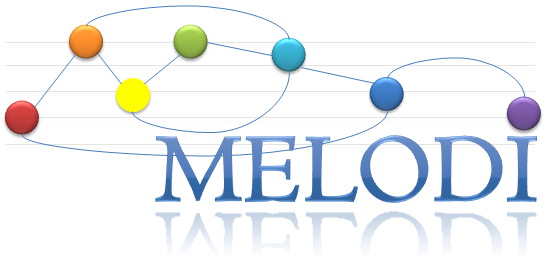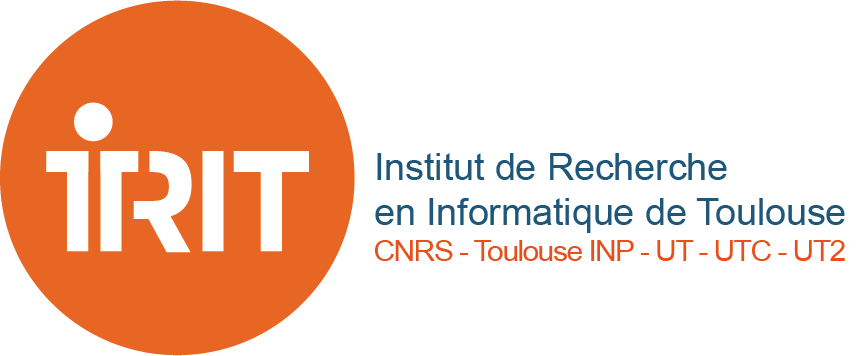L’équipe MEthodes et ingénierie des Langues, des Ontologies et du DIscours (MELODI) est issue de la fusion des équipes IC3 et d’une partie de l’équipe LIlaC de l’IRIT.
MELODI se préoccupe de recherches articulant l’analyse et la formalisation de la langue naturelle d’une part, la représentation et la modélisation des connaissances d’autre part. De plus, l’équipe offre un éventail d’approches de la recherche allant d’études théoriques sur les éléments contribuant à la sémantique et à sa représentation formelle, sur interactions et les structures de discours, à des études plus expérimentales basées sur des développements logiciels, la constitution de ressources (corpus, corpus annotés, lexiques et ontologies) et des évaluations en corpus. Une partie de ses travaux se situe dans une démarche d’ingénierie des connaissances pour outiller la construction d’applications faisant appel à ces caractérisations sémantiques et à des modèles de connaissances.
Pour le volet langue naturelle, les thématiques abordées par MELODI concernent :
- l’analyse et la description conceptuelle ou formelle de phénomènes linguistiques au niveau de la sémantique lexicale, de la phrase, du discours ou du texte ;
- l’apprentissage automatique de représentations structurées pour le TAL.
Pour le volet représentation des connaissances, MELODI traite les points suivants :
- des méthodes et des principes de construction d’ontologies et de gestion de leurs évolutions ;
- de la modélisation et de la représentation de connaissances à l’aide de graphes ou de la logique
À l’intersection de la langue naturelle et des représentations des connaissances MELODI aborde :
- la construction d’ontologies à partir de textes ;
- la caractérisation linguistique de relations sémantiques ;
- les méthodes de développement d’applications faisant appel à la dualité langue/connaissances.
Théories de référence
- Les théories représentationnelles : modélisation explicite de connaissances et de résolution de problème, ontologie.
- La sémantique du contenu des actions linguistiques (sémantique formelle) Les théories de la structure de l’interaction : jeux de dialogue, théories formelles du discours (SDRT).
- La sémantique textuelle et de corpus.
- Théorie des usages et de l’activité.
Développement d’outils et de méthodologies
Quelques exemples de résultats récents :
- Méthodologie et outils pour l’annotation de corpus (relations de discours, relations temporelles) (Projet ANR ANNODIS)
- Algorithmes d’apprentissage pour le repérage d’unités de discours en corpus
- Etude des structures de discours dans le dialogue (Projet ERC STAC)
- Repérage des marques linguistiques d’opinions (projet CASOAR)
- Extracteur des relations sémantiques contenues dans les textes à l’aide de patrons lexico-syntaxiques (Caméléon).
- Outils d’annotation sémantique de texte et de gestion de la dynamique de l’ontologie associée (Textviz, Projets ANR Dynamo et CorpusLogicistes).
- Expression de requêtes SPARQL à partir de patrons de requêtes.
- Construction d’ontologies à partir de documents structurés (Projet ANR Géonto)
- Prise en compte d’éléments discursifs et de l’architecture textuelle dans l’identification de concepts et de relations à partir de textes (BQR OntoDis)
- Contribution à la méthode et à la plate-forme DAFOE pour la construction d’ontologies et de terminologies à partir de textes (projet ANR Dafoe4App)
- Service web pour l’interrogation d’ontologies (projet ANR WebContent)

